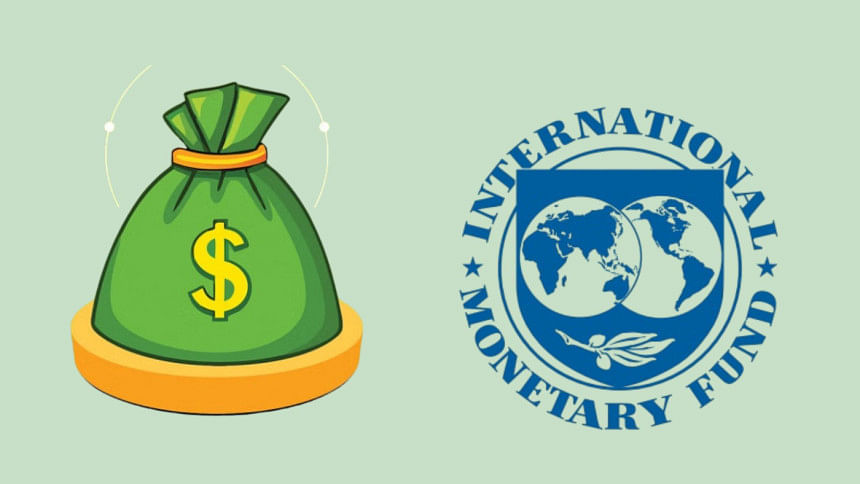IMF approves $1.3b in loans

The executive board of the International Monetary Fund yesterday approved the fourth and fifth instalments of its loan for Bangladesh, a top-up of the original $4.7 billion credit by about $800 million with a six-month extension.
Following the approval, Bangladesh has received about $1.3 billion from the IMF, the first disbursement under the country's interim government.
Bangladesh Bank Governor Ahsan H Mansur confirmed the IMF approval in a text message to The Daily Star. "Certainly. The meeting was over a few hours ago as confirmed by the IMF staff," he wrote, referring to the IMF board meeting in Washington.
Additionally, the IMF executive board approved a modification of performance criteria and granted a waiver for the non-observance of the performance criterion related to the non-imposition and non-intensification of exchange restrictions, based on the temporary nature of the non-observance and the implementation of corrective measures.
Programme performance for the third and fourth reviews remains broadly satisfactory despite the difficult political and economic context, the IMF said in a statement after the meeting.
Bangladesh's macroeconomic challenges have increased since the 2024 uprising, which led to the ouster of the previous government. The timely formation of an interim government has helped stabilise political and security conditions, fostering a gradual return to economic stability.
"However, the economic outlook has worsened due to persistent political uncertainty, continuation of tighter policy mix, rising trade barriers, and increasing stress in the banking sector," the IMF said.
Near-term policies should prioritise rebuilding external resilience and reducing inflation, said Nigel Clarke, deputy managing director and acting chair of IMF, after the board meeting.
The authorities' recent steps to implement a new exchange rate regime and include revenue-enhancing measures in the fiscal 2025-26 budget are "welcome", Clarke said.
A balanced policy mix, anchored in maintaining a tight monetary policy stance, greater exchange rate flexibility and revenue-based fiscal consolidation, will support efforts to restore both external and internal balances.
Efforts to raise tax revenues and rationalise expenditures, including through subsidy reduction, are critical for creating the fiscal space needed to strengthen social, development and climate initiatives.
"Sustained structural reforms are essential for Bangladesh to achieve its goal of attaining upper middle-income status," Clarke said.
"Key priorities include diversifying exports, attracting greater foreign direct investment, strengthening governance and enhancing data quality," he added.
The board withheld approval earlier this year after Dhaka missed deadlines to fully liberalise its exchange rate and take concrete steps to overhaul the National Board of Revenue.
The breakthrough follows the recent adoption of a unified, market-based exchange rate and a government push to restructure tax administration as part of a broader effort to boost revenue collection.

 For all latest news, follow The Daily Star's Google News channel.
For all latest news, follow The Daily Star's Google News channel. 



Comments